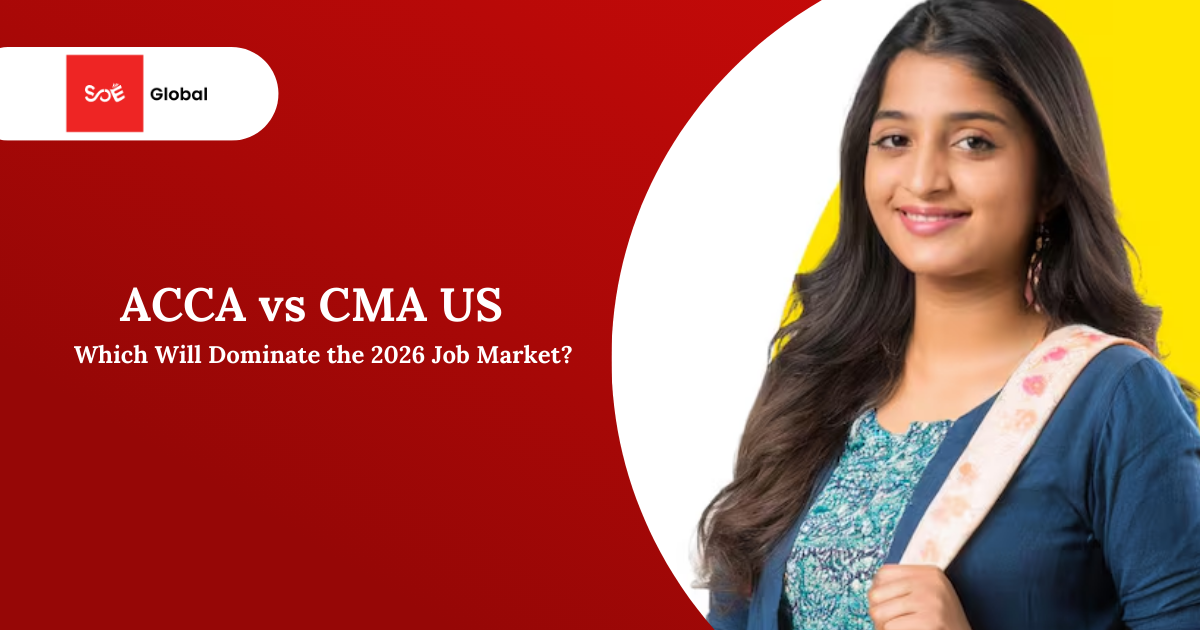Table of Contents
ToggleThe finance and accounting sector in India stands at an inflection point of unprecedented opportunity. According to the Confederation of Indian Industry (CII), the finance sector experiences 15-18% annual growth, creating thousands of premium career opportunities annually.
For ambitious professionals asking “how to get into finance,” “how to get a job in accounting,” or “how to start a career in finance,” the answer lies in strategic planning combining education, professional certifications, practical skills, and deliberate job search execution.
This comprehensive guide reveals exact pathways thousands of Indian professionals have used to build extraordinary finance careers, earning salaries from ₹2.5 lakhs as entry-level analysts to ₹2+ crores as Chief Financial Officers.
As the legendary investor Warren Buffett once stated, “Accounting is the language of business.” Understanding this language—and mastering it professionally—unlocks remarkable career opportunities offering both financial security and intellectual satisfaction. Whether you’re contemplating how to get a job in finance after graduation, exploring how to find a job in accounting, or planning how to get a career in finance with maximum earning potential, this roadmap provides concrete direction at every career stage.
How to Get Into Finance
Your educational foundation significantly influences your entire career trajectory within finance. Strategic degree selection during college dramatically impacts subsequent opportunities, earning potential, and career progression speed.
B.Com (Bachelor of Commerce)
The Bachelor of Commerce degree remains the optimal foundation for finance careers, offering exceptional alignment with industry requirements. The curriculum covers financial accounting, management accounting, cost accounting, taxation, auditing, business law, and business management—essentially all foundational concepts forming the backbone of professional finance careers. B.Com graduates benefit from strong employer recognition, with campus recruiters specifically targeting commerce colleges.
Beyond curriculum alignment, B.Com provides superior foundation for professional certifications. When pursuing CMA USA certification (6-12 months, +58% salary premium), B.Com graduates complete exams 30-40% faster with substantially higher pass rates. The certification-education synergy accelerates your pathway into premium finance roles significantly.
BBA and B.Sc Finance – Flexible Alternatives
BBA programmes offer exceptional flexibility for those uncertain about pure accounting careers, covering management, finance, economics, and accounting. Many premier BBA programmes offer finance specialisation during final year, allowing deepened financial knowledge whilst maintaining strategic business perspective. B.Sc Finance provides quantitative foundation emphasising financial markets and investment analysis—ideal for those interested in investment banking or wealth management.
Key Tips for Educational Success:
- Choose finance-focused degree deliberately rather than drifting through coursework
- Participate in finance clubs, case competitions, and investment clubs actively
- Build Excel proficiency, financial modelling basics, and software expertise during college
- Secure 2-3 quality internships in finance departments during summer breaks
- Maintain strong academic performance (7.5+ CGPA facilitates placement)
How to Get a Job in Finance
Understanding how to find a job in finance requires recognising that recruitment involves multiple parallel streams. Strategic engagement across all channels maximises opportunities dramatically.
Stage 1: Develop Competitive Technical Skills
Foundation for securing premium finance roles begins with skill development paralleling formal education:
- Excel Mastery: Most finance professionals spend 30-40% working time in Excel. Develop proficiency beyond basic formulas—learn VLOOKUP, INDEX-MATCH, pivot tables, and basic macro writing. Online courses provide comprehensive training systematically.
- Financial Modelling: Understand three-statement model construction, valuation analysis, and scenario modelling. Financial modelling expertise commands premium compensation.
- Accounting Software: Learn Tally (most common in India), SAP, Oracle, or QuickBooks. Software familiarity streamlines on-the-job productivity.
- Data Analysis: Learn data cleaning, pivot tables, and data summarisation. Familiarity with Tableau or Power BI increasingly matters.
- Communication Excellence: Develop presentation abilities and financial communication skills through academic projects and clubs.
Stage 2: Secure Strategic Quality Internships
Internships represent the golden bridge from academics to employment. Strategic internship selection significantly influences post-graduation opportunities:
- Target finance-specific departments rather than general administration
- Seek Big 4 consulting firm internships (Deloitte, PwC, EY, KPMG)—40-60% of interns convert to full-time offers
- Bank internships teach financial processes and regulatory environments
- Corporate accounting internships provide consolidated accounting and process exposure
- Convert internships into permanent offers through excellent performance and team integration
Stage 3: Leverage Campus Placements
Campus placements remain the most efficient entry pathway for graduates:
- Craft compelling resumes highlighting finance projects and achievements
- Excel in aptitude tests emphasising quantitative reasoning
- Perform strongly in group discussions and interviews
- Network with company recruiters conducting campus recruitment
- Target analyst-level positions aligned with your interests
Stage 4: Utilise Multiple Job Search Channels
Beyond campus placements, engage multiple recruitment streams:
- Online Platforms: LinkedIn, Indeed, Naukri.com, Monster.com with optimised finance profiles
- Networking & Referrals: 40-50% of quality finance positions fill through referrals—attend industry events, join professional associations, leverage alumni networks
- Direct Applications: Target companies’ career pages (Big 4, technology giants, banks)
How to Get a Career in Accounting
Accounting careers require specific focus and professional credentials distinguishing them from general finance roles.
Professional Certifications Transforming Accounting Careers:
| Certification | Duration | Investment | Salary Premium | Best For |
|---|---|---|---|---|
| CMA USA | 6-12 months | ₹1.5-2.5L | +58% immediately | Strategic finance |
| CA | 4-5 years | ₹2-3L | +45% upon completion | Audit, tax, practice |
| ACCA | 2-3 years | ₹3-4L | +40% upon completion | International accounting |
CMA USA: Game-Changing Certification for Finance Careers
CMA USA certification dramatically transforms finance and accounting careers. The certification demonstrates strategic management accounting expertise and business decision-making capability—precisely what modern finance roles demand. Key advantages include:
- Completes in 6-12 months versus 4-5 years (CA) or 2-3 years (ACCA)
- Global recognition across 180+ countries enabling international mobility
- Opens doors to premium consulting, banking, and strategic finance positions
- Freshers with CMA earn ₹7-14 lakhs annually versus ₹4-8 lakhs without certification
- Creates ₹1+ crore lifetime earnings advantage over 30-year careers
Entry-Level Accounting Positions:
| Position | Salary | Focus | Career Path |
|---|---|---|---|
| Junior Accountant | ₹2.5-4L | Transaction processing, reconciliation | → Senior Accountant → Manager |
| Audit Associate | ₹2.8-4.5L | Audit procedures, control testing | → Senior Auditor → Manager |
| Cost Accountant | ₹2.5-4L | Cost analysis, efficiency improvement | → Cost Manager → Controller |
How to Start a Career in Finance
Years 1-3 (College Period):
Choose finance-focused degree strategically. Build Excel mastery, financial modelling, and communication skills. Secure 2-3 quality internships in finance. Maintain strong academics (7.5+ CGPA). Join finance clubs and case competitions. Develop professional network through industry events.
Upon/Just Before Graduation:
Participate actively in campus placements. Apply to graduate recruitment programmes. Pursue CMA USA certification (strongly recommended for rapid acceleration). Target entry-level analyst positions. Prepare thoroughly for interviews.
Years 3-5 (Entry-Level Position):
Excel in first finance role. Complete CMA USA certification (provides 58% salary boost). Develop specialisation expertise. Build professional networks. Seek stretch assignments expanding capabilities.
Years 5-10 (Career Development):
Transition to management roles. Lead projects and develop teams. Build strategic thinking capabilities. Pursue MBA if targeting C-suite positions.
Career Progression Roadmap: Expected Salary and Growth Trajectory
| Career Stage | Position | Timeline | Salary Range | Focus |
|---|---|---|---|---|
| Entry-Level | Junior Analyst/Accountant | 1-2 years | ₹2.5-5L per annum | Operational learning |
| Junior-Mid | Senior Analyst/Accountant | 2-4 years | ₹6-12L per annum | Expertise development |
| Mid-Level | Finance Manager | 4-7 years | ₹12-25L per annum | Team leadership |
| Senior-Level | Senior Manager/Director | 7-10 years | ₹25-50L per annum | Strategic impact |
| Executive | VP Finance/CFO | 10-15 years | ₹50L-₹2Cr+ per annum | Organisational impact |
With CMA USA certification and strategic employer selection, compress this timeline by 2-3 years—reaching management roles by year 8 instead of year 11.
Essential Skills for Finance & Accounting Success
Success requires developing comprehensive competencies beyond formal education:
Technical Skills: Excel proficiency, financial modelling, accounting software expertise (Tally, SAP, Oracle), financial statement analysis, budgeting and forecasting, data analysis
Analytical Capabilities: Problem-solving, quantitative analysis, pattern recognition, risk assessment
Business Skills: Strategic thinking, industry knowledge, project management, business partnering
Soft Skills: Communication, presentation excellence, stakeholder management, team leadership, emotional intelligence
Common Career Mistakes to Avoid
- Not choosing education strategically—select finance-focused degree deliberately
- Neglecting practical skills beyond academics—proactively develop Excel and modelling expertise
- Poor internship selection—prioritise quality over convenience
- Insufficient networking—build relationships actively (40-50% positions emerge through referrals)
- Delaying professional certifications—obtain CMA USA early for career acceleration
- Accepting first offer without research—study market rates and negotiate professionally
- Stagnating in entry-level roles—actively seek advancement after 2-3 years
Conclusion: Your Premium Finance & Accounting Career Awaits
Understanding how to get into finance and accounting careers combines strategic education, deliberate skill development, quality internships, professional certifications, and proactive job search execution. The finance sector in India offers exceptional opportunities with entry-level salaries reaching ₹5+ lakhs and career paths leading to six-figure earnings within 10-12 years.
Strategic decisions made early—selecting premium employers, obtaining CMA USA certification immediately post-graduation, developing diverse experience—compound into significantly faster career progression and substantially higher lifetime earnings. The time to begin your finance career journey is now—not years hence.
Still uncertain which finance or accounting specialisation aligns best with your strengths? Let SOE Global’s expert career counsellors guide your journey. Our advisors combine finance industry expertise, professional network access, and personalised mentoring, helping each candidate identify optimal pathways into rewarding finance and accounting careers.
Enrol for your complimentary, personalised career consultation with SOE Global today. We’ll assess your background, understand your aspirations, outline realistic pathways into high-paying finance roles, recommend strategic certifications (particularly CMA USA’s career-transforming benefits), and provide actionable job search strategies maximising your placement success.
Visit www.soeglobal.com or contact our Chennai centre at 073580 02200, Coimbatore centre at 88382 07669.
Choose decisive action today. Choose professional guidance. Choose SOE Global. Your transformative finance and accounting career begins with a single conversation now.
FAQs: How to Get Into Finance & Accounting
How to get into finance as a fresher from a non-finance background?
Choose B.Com, BBA, or B.Sc Finance degree. Build Excel and financial modelling skills online. Secure 2-3 finance internships during college. Pursue CMA USA certification (6-12 months) for +58% salary boost. Apply for entry-level analyst positions. Network actively on LinkedIn and industry events. Start with smaller companies, progressing to premium organisations.
What are the most effective ways to find a job in finance?
Register on LinkedIn, Indeed, Naukri.com with optimised profiles. Set job alerts and network extensively—40-50% positions fill through referrals. Apply directly to company career pages. Participate in campus placements. Leverage internship conversions. Prepare thoroughly for interviews. Follow up professionally after applications.
How to get a job in accounting without prior experience?
Pursue B.Com degree providing 90%+ job readiness. Learn accounting software (Tally, SAP, QuickBooks) and Excel. Secure accounting internships with audit firms. Obtain CMA USA, CA, or ACCA certification. Participate in campus placements. Build resume highlighting accounting projects. Apply for Junior Accountant or Audit Associate roles.
What qualifications help most in getting started with a finance career?
B.Com offers strongest foundation (90%+ job readiness). BBA and B.Sc Finance provide excellent alternatives. Professional certifications boost career: CMA USA (+58% salary), CA, ACCA. Master Excel, financial modelling, accounting software. Strong mathematics and analytical abilities matter. Communication skills are increasingly important for career advancement.
How can I accelerate my career progression in finance and accounting?
Pursue CMA USA immediately post-graduation for +58% salary acceleration. Choose premium employers (Big 4, investment banks, tech companies). Excel consistently in roles. Seek stretch assignments expanding capabilities. Build professional networks actively. Develop specialised expertise. Consider MBA after 5-7 years. Change roles every 2-3 years strategically.
What skills are essential for success in finance and accounting careers?
Excel mastery is absolutely essential (30-40% work time). Financial modelling and valuation techniques matter greatly. Accounting software proficiency (Tally, SAP) is necessary. Strong analytical and problem-solving abilities differentiate top performers. Communication and presentation skills enable influence. Business acumen and emotional intelligence determine long-term success.
How long does it typically take to build a successful finance career?
College (3 years) → Entry-level analyst (1-2 years, ₹2.5-5L) → Senior analyst (2-4 years, ₹6-12L) → Manager (4-7 years, ₹12-25L) → Director (7-10 years, ₹25-50L) → CFO (10-15 years total). CMA USA certification compresses timeline by 2-3 years significantly.
Which professional certification provides best return on investment for finance careers?
CMA USA offers exceptional ROI: 6-12 months duration, ₹1.5-2.5 lakhs investment, +58% immediate salary premium. Faster than CA (4-5 years), ACCA (2-3 years), MBA (₹5-25 lakhs). Creates ₹1+ crore lifetime earnings advantage. Obtain immediately post-graduation for maximum benefit.
What are common mistakes people make when entering finance careers?
Choosing education without career purpose. Neglecting practical skills (Excel, software). Poor internship selections. Insufficient networking (40-50% positions emerge through referrals). Delaying professional certifications. Accepting first offer without research. Stagnating in entry-level roles beyond 2-3 years. Ignoring continuous learning about emerging technologies.
How does CMA USA certification specifically help getting into finance careers?
Accelerates career entry with +58% immediate salary premium. Completes in 6-12 months (fastest certification). Freshers earn ₹7-14 lakhs versus ₹4-8 lakhs without certification. Opens Big 4, banking, tech company roles. Globally recognised across 180+ countries. Obtain during final college year for maximum impact.




